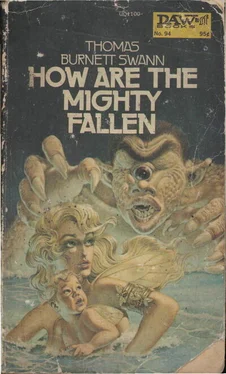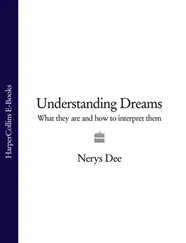Thomas Swann - How are the Mighty fallen
Здесь есть возможность читать онлайн «Thomas Swann - How are the Mighty fallen» весь текст электронной книги совершенно бесплатно (целиком полную версию без сокращений). В некоторых случаях можно слушать аудио, скачать через торрент в формате fb2 и присутствует краткое содержание. Жанр: Фэнтези, на английском языке. Описание произведения, (предисловие) а так же отзывы посетителей доступны на портале библиотеки ЛибКат.
- Название:How are the Mighty fallen
- Автор:
- Жанр:
- Год:неизвестен
- ISBN:нет данных
- Рейтинг книги:4 / 5. Голосов: 1
-
Избранное:Добавить в избранное
- Отзывы:
-
Ваша оценка:
- 80
- 1
- 2
- 3
- 4
- 5
How are the Mighty fallen: краткое содержание, описание и аннотация
Предлагаем к чтению аннотацию, описание, краткое содержание или предисловие (зависит от того, что написал сам автор книги «How are the Mighty fallen»). Если вы не нашли необходимую информацию о книге — напишите в комментариях, мы постараемся отыскать её.
How are the Mighty fallen — читать онлайн бесплатно полную книгу (весь текст) целиком
Ниже представлен текст книги, разбитый по страницам. Система сохранения места последней прочитанной страницы, позволяет с удобством читать онлайн бесплатно книгу «How are the Mighty fallen», без необходимости каждый раз заново искать на чём Вы остановились. Поставьте закладку, и сможете в любой момент перейти на страницу, на которой закончили чтение.
Интервал:
Закладка:
Such a stupid woman, thought David. How could Saul choose her above Ahinoam? Once only had he seen the queen and thought her carven from gold, so still and perfect she seemed, and yet with the heart of a woman, for he had seen her weep. (A boy with his herds, he had seen a tall, beautiful lady walking in the hills near Bethlehem. He had taken her for a goddess and feared to show his face. It was after Saul had sent her from his bed.)
David played a psalm which he had learned in his childhood. He played well because he pitied the king:
“Like as a father pitieth his children,
So the Lord pitieth them that fear him.
For he knoweth our frame;
He remembereth that we are dust.
As for man, his days are as grass;
As a flower of the field, so he flourisheth.
For the wind passeth over it, and it is gone;
And the place thereof shall know it no more…“
At first there was no response from anyone in the tent. He looked around him with sudden panic; he felt as if a lion, unseen but sensed, were poised to spring upon his flocks. How had a lowly shepherd from Bethlehem presumed to play for the king of Israel? It was then that Rizpah began to weep and Saul raised his head. The king stared fixedly at David through eyes no longer clouded; indeed, they had become judging, calculating, concluding. He was a basically simple man, David decided, forced by the duties of kingship into complexities which would baffle the wisest of pharaohs. He must lead an army; he must rule a court; he must pacify the Lord and try to placate Samuel. Now, thought David, humble beneath the cool appraising stare, he must even judge a shepherd’s performance with a lyre.
“You must play for me again,” said the king.
“I have to return to my father tomorrow,” said David. “He sent me here to bring some cakes and cheeses to my brothers.”
“Your father, you say? Jesse of Bethlehem, is he not? I know him well. A good and loyal subject who has sent me three of his sons. Can he not spare a fourth to please his king?”
David reconsidered the invitation. “I have four other brothers at home, and a sister to help my mother.” The chance to hurl a spear as well as play the lyre was irresistible. “It may be-”
“Consider it settled,” said the king. He smiled, and the perfect white teeth looked strangely young in the scarred and aging face. The pointed beard usually gave him a fearsome aspect, but now he appeared indulgent, Yahweh after he had fashioned the earth and taken his ease on the Seventh Day.
“He is too young to fight,” Abner said firmly.
“I have need of an armorbearer. Let him first learn his duties in the camp. Only then shall he go into battle. Meanwhile, he can play his lyre for me in the evenings.”
Rizpah smiled winningly-her mouth was large and her teeth were blackened from chewing betel nuts-and she offered David a tarnished silver bracelet which she stripped from her wrist. There were no coins in Israel; business transactions were made on the basis of produce, copper ingots called shekels, or bracelets of metal and stones. In short, she was paying him for a performance.
David shook his head. “I did not play for hire.”
Abner smiled and clapped him on the back. “Rizpah intended a gift, not a payment. But young boys, especially armorbearers to kings, need tunics and sandals more than bracelets.” He ushered him from the tent. “Later we will find you a corner to sleep in. And fresh garments. Go now and get your things. You have pleased the king greatly. But always remember. His moods are as changeable as the desert-and as dangerous.”
“I’m not afraid. Will I get to meet Jonathan?”
“Jonathan is often with his father. He will no doubt help to instruct you in your duties.”
“I would like that,” David said.
“Would you?” said Abner, musing. “Jonathan has need of friends.”
“But he can have any friend he chooses. He’s the hero of Israel!”
“It is very lonely to be a hero, especially at the age of twenty. He needs someone who will talk to him and not up to him.”
– Thus David became Saul’s armorbearer, but before he had learned to fight, the battle of Michmash was fought and won by Jonathan’s stratagem and Abner’s strength and only a lack of supply wagons and chariots prevented the Israelites from pursuing their foe to the sea. After the battle, David cleaned the iron-tipped spears of the king and his son. The metal was new to Israel, but the two spears had been captured from the Philistines.
“Enough of that,” said the king. “A child can clean a spear. Only David sings like Gabriel.”
He sang the psalm which he had written for Jonathan, and Saul seemed immensely pleased to hear his son applauded as the hero of such an adventure. Even as he sang, David attempted to further understand his king: You would rather be flailing wheat on your boyhood farm than ruling a court. It is neither pride nor vanity which drives you, but dedication. You feel that you have inherited the mantle of Joshua and Gideon and must recapture the Ark of the Tabernacle and restore the glory of Israel. Thus your pride in Jonathan and thus, because you are human, your preference for a harlot over a queen, since the one time when you can be a simple man instead of Yahweh’s emissary is in the arms of Rizpah.
David’s brothers made fun of him when, as they said, he “caught a man in a tent” and evaluated him to the last precise detail of appearance and character. But David’s tents were carefully raised and staked.
“Jonathan will be honored by your song,” said the king.
“He is a great warrior, is he not?”
“The best in my army next to Abner.”
“I envy him then.”
“Don’t.”
The word was abrupt and unanswerable. The king, seeing David’s surprise, tried to explain his terse command.
“Great warriors may become great victims. The enemy seek them out in the press of battle. Jonathan is very young. If he should die, all of Israel would mourn him like a bereaved maiden.”
But David sensed another meaning behind the words. Jonathan unenviable? (7 will meet him and judge for myself if he is truly great and truly fortunate.) Leaving the tent when Ahinoam arrived to await her son, he encountered a young man with a dusty tunic and the face of a god.
Even through the dust, David discerned the torrent of golden hair, brighter than sunlight on a wave; the faintly slanted eyes, blue as the waters around the Misty Isles (so landlocked David imagined); the perfect lips, faintly pink like the lip of the conch shells used by the Philistines as horns to begin a charge. (Strange to think of him in terms of the sea, I have never been to the coast.)
He discerned too a surprising weakness in the famous young warrior. It was neither moral nor ethical; it was not a shifty eye or averted gaze. Rather, there was a fragility about him; he was like a purple murex with its delicate spines and its exquisite dyes. He is too beautiful, David decided. He has about him the transience of perfection. Being already perfect, he cannot be improved, he can only be broken.
“You are David,” said Jonathan. His smile would have warmed Goliath. “A demon of fever kept me in my tent before the battle. But I have heard of you.”
“How did you know me?”
“By your lyre, of course. But most of all by your face. Your red hair is the talk of the camp. It is like the hills of Judah at sunrise.” Israelite men, unlike the Philistines, did-not as a rule speak of masculine beauty; only of skill or courage or strength. “My father says you play like an angel. Won’t you stay now and play for me too?”
“No-no,” David faltered. “The queen, your mother, is waiting for you.” Never had he wanted so much to stay. Never had he wanted so much to flee. He is like Ahinoam, he thought, with one difference. She, though rejected, remains a queen in the citadel of her pride. He is without defenses in his gentleness. Thus, it is Jonathan who is the greater threat to me.
Читать дальшеИнтервал:
Закладка:
Похожие книги на «How are the Mighty fallen»
Представляем Вашему вниманию похожие книги на «How are the Mighty fallen» списком для выбора. Мы отобрали схожую по названию и смыслу литературу в надежде предоставить читателям больше вариантов отыскать новые, интересные, ещё непрочитанные произведения.
Обсуждение, отзывы о книге «How are the Mighty fallen» и просто собственные мнения читателей. Оставьте ваши комментарии, напишите, что Вы думаете о произведении, его смысле или главных героях. Укажите что конкретно понравилось, а что нет, и почему Вы так считаете.












